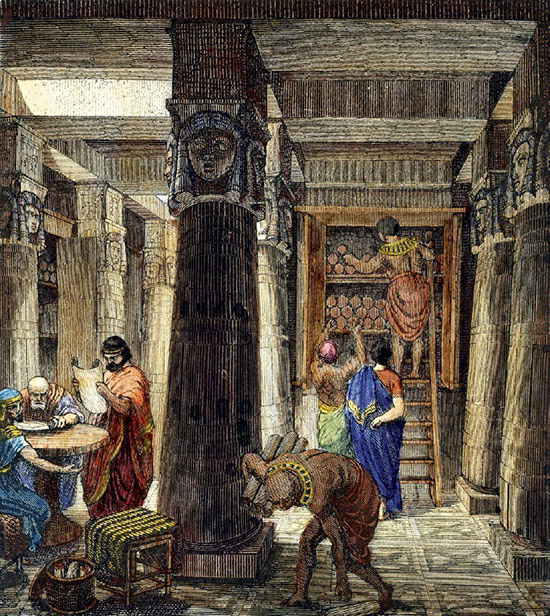The Great Library of Alexandria, established around 300 BCE, was an ambitious project aimed at housing the entirety of the world’s knowledge. This marked a significant step in the evolution of libraries, which began with collections of cuneiform tablets in ancient Sumer around 2600 BCE. The library of Alexandria sought to accumulate books, clay tablets, and scrolls from across the globe, becoming a hub for global knowledge.
In its prime, the library was not only a repository of scholarly works but also a symbol of Egypt’s intellectual and cultural dominance. Historians believe that it housed an impressive collection of 40,000 to 400,000 scrolls, encompassing a wide array of scientific, cultural, and historical knowledge. This made it a prestigious center for scholars worldwide.
Tragically, the library’s vast collection was lost during various sieges as the Roman Empire conquered Egypt. This destruction led to an irreplaceable loss of ancient wisdom and is considered one of the greatest scholarly tragedies in history. The loss of the Great Library of Alexandria signifies the vulnerability of cultural and intellectual heritage, underscoring the importance of preserving knowledge across generations.

